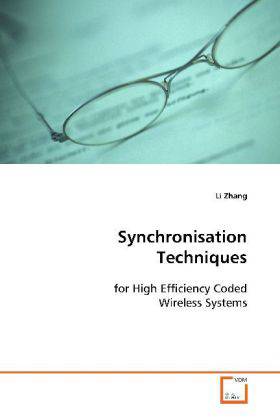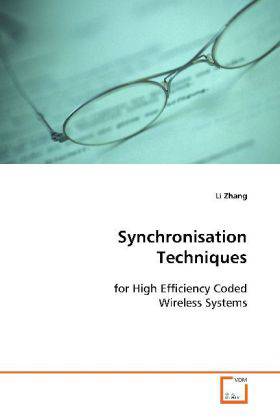
- Afhalen na 1 uur in een winkel met voorraad
- Gratis thuislevering in België vanaf € 30
- Ruim aanbod met 7 miljoen producten
- Afhalen na 1 uur in een winkel met voorraad
- Gratis thuislevering in België vanaf € 30
- Ruim aanbod met 7 miljoen producten
Zoeken
€ 67,45
+ 134 punten
Omschrijving
In systems with highly efficient turbo-codes, where the operating SNR may be as low as 1-2 dB, excellent estimation accuracy for synchronisation parameters is required. However, in such conditions conventional non-data-aided synchronisation techniques become difficult due to the low SNRs. In addition, to achieve a high efficiency, it is desirable to recovery synchronisation from received data signals without using preambles. This book describes a novel concept, which is called a priori probability aided synchronisation. This concept fits particularly well with the iterative turbo decoder, but it will also be applicable with other types of code. The proposed synchronisation operates iteratively and jointly with the turbo decoding, rather than separately prior to the decoding. This allows a successive refinement of synchronisation and provides reliable estimation and robust data decoding against a wide range of synchronisation offsets. It is shown that remarkable performance approaching that of the data-aided techniques can be achieved using blind synchronisation at low SNRs.
Specificaties
Betrokkenen
- Auteur(s):
- Uitgeverij:
Inhoud
- Aantal bladzijden:
- 196
- Taal:
- Engels
Eigenschappen
- Productcode (EAN):
- 9783639090406
- Verschijningsdatum:
- 6/10/2008
- Uitvoering:
- Paperback
- Formaat:
- Trade paperback (VS)
- Afmetingen:
- 152 mm x 229 mm
- Gewicht:
- 267 g

Alleen bij Standaard Boekhandel
+ 134 punten op je klantenkaart van Standaard Boekhandel
Beoordelingen
We publiceren alleen reviews die voldoen aan de voorwaarden voor reviews. Bekijk onze voorwaarden voor reviews.











